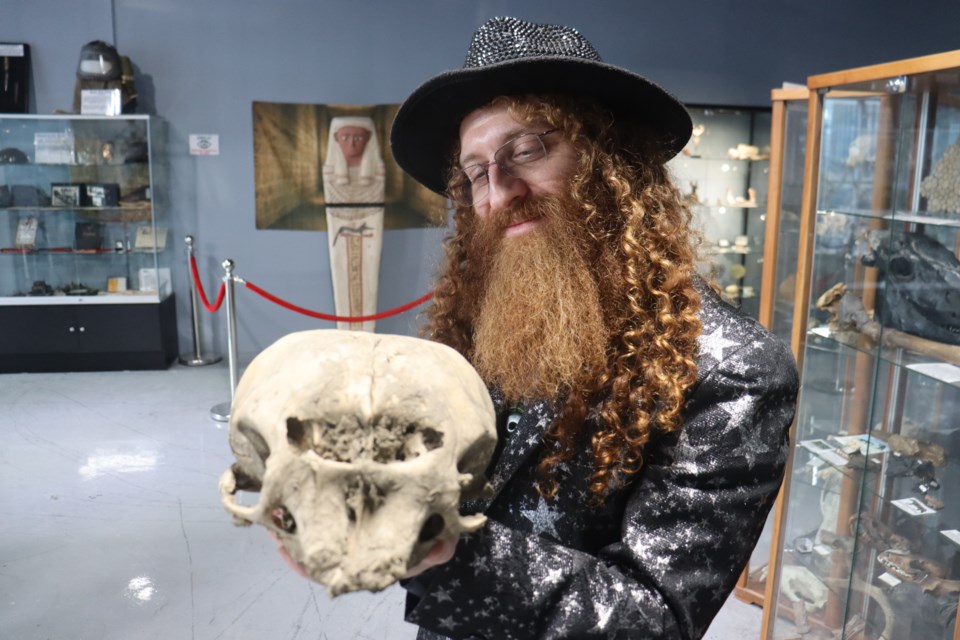While so much of downtown Toronto is pressing towards the future, Ben Lovatt is taking the public back in time with his massive collection of oddities and artifacts at the Prehistoria Natural History Centre near Dundas Square.
Ancient relics from pre-Pharoah times, 100-million-year-old dinosaur fossils and a wide collection of human skulls only begin to scratch the surface of the peculiar and rare items the curator has been selling and displaying out of his new, and slightly hidden location, at 333 Yonge St.
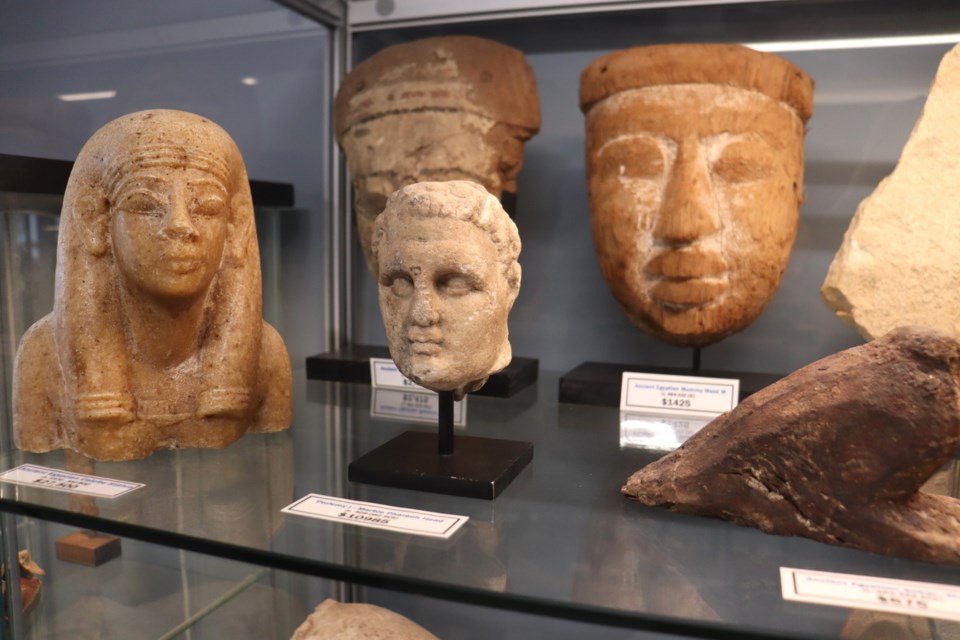
Avid collectors looking to make their next big purchase can buy a human child skull (hydrocephalic) for $14,950, a woolly rhino fossil skull for $49,750 or an ancient Egyptian sarcophagus for $395,850.
You can also save yourself from taking a trip down to the Titanic wreckage and purchase a piece of coal from the ill-fated ship.
But those items are just in the SkullStore gift shop. The store finances the operation of Lovatt’s museum upstairs, which includes a wide variety of taxidermy mounts, as well as genuine spaceflight hardware and a Holocaust memorial. He even has a giant t-rex skeleton next to the stairwell.
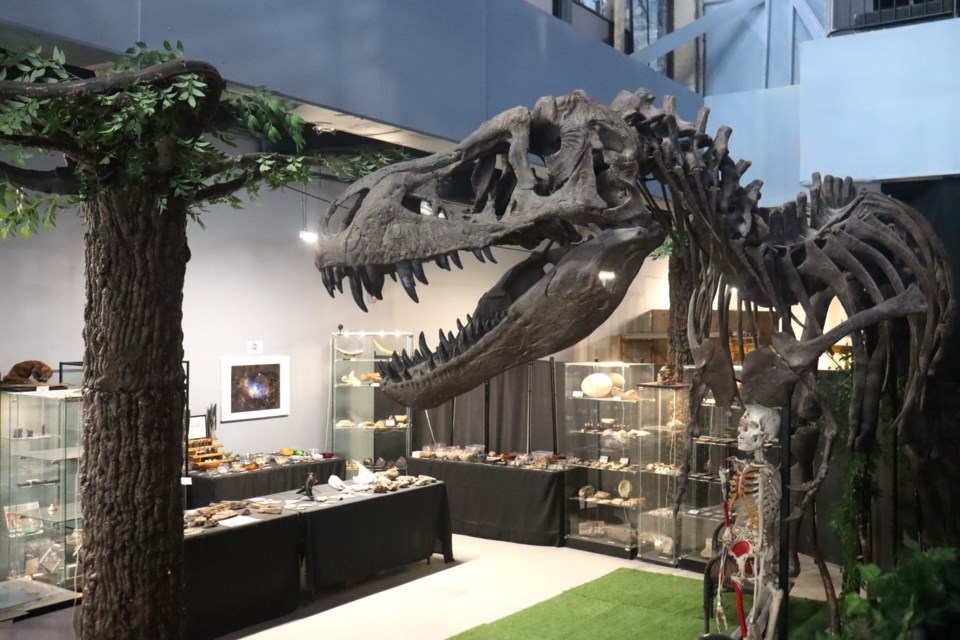
Since it opened nine years ago, the museum has worked with filmmakers, artists, educators, and scientists across the planet to ensure their products receive the exposure and respect they deserve, Lovatt said. But the road to international recognition hasn’t been an easy one, he admitted.
Creating a sustainable brand
Living with severe disabilities growing up before eventually leaving home at 15, Lovatt never imagined his passion for animals and reptiles would take off the way it did.
By his early adult years, he was running a conservation-based pet business where customers could buy captive bred animals. During that time, he attended a reptile expo when he met an older man at a table who was selling fossils.
That’s when everything changed for Lovatt.
“I thought, ‘You can buy a fossil? That’s a thing?’ I was 23, living on 400 bucks a month and losing the battle with my health. I bought a bunch of fossils, and without even trying to sell them, I sold them all in 20 minutes and made my entire month’s rent,” he said.
His online museum, which debuted with 15 artifacts, soon expanded to fill a cabinet and later an entire wall. Nine years ago, Lovatt was able to open his very first business on Dundas Street West where he taught people about reptiles, conservation and fossils.
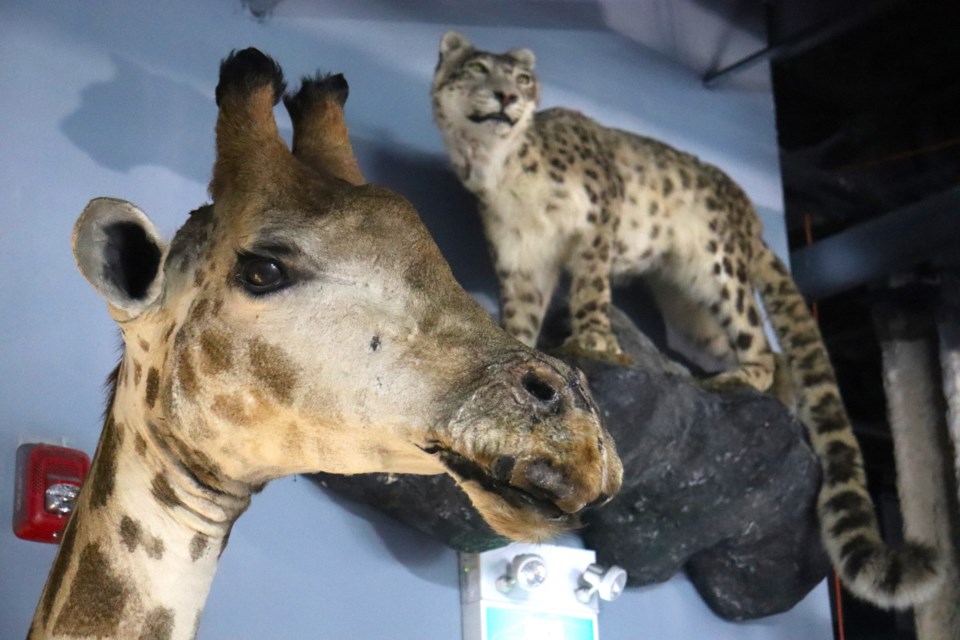
Since then, he has established numerous connections with suppliers, archaeologists and curators from around the globe. Lovatt said he acquires and purchases artifacts, bones and other unique pieces through ethical, responsible streams and with permission from the government bodies, wildlife enforcement agencies and various cultures who grant him the approval to display or sell the items at his museum.
While it’s a massive undertaking with many complexities involved, Lovatt said the supply chain is tight, the entire sourcing trail is verified and the networking is imperative.
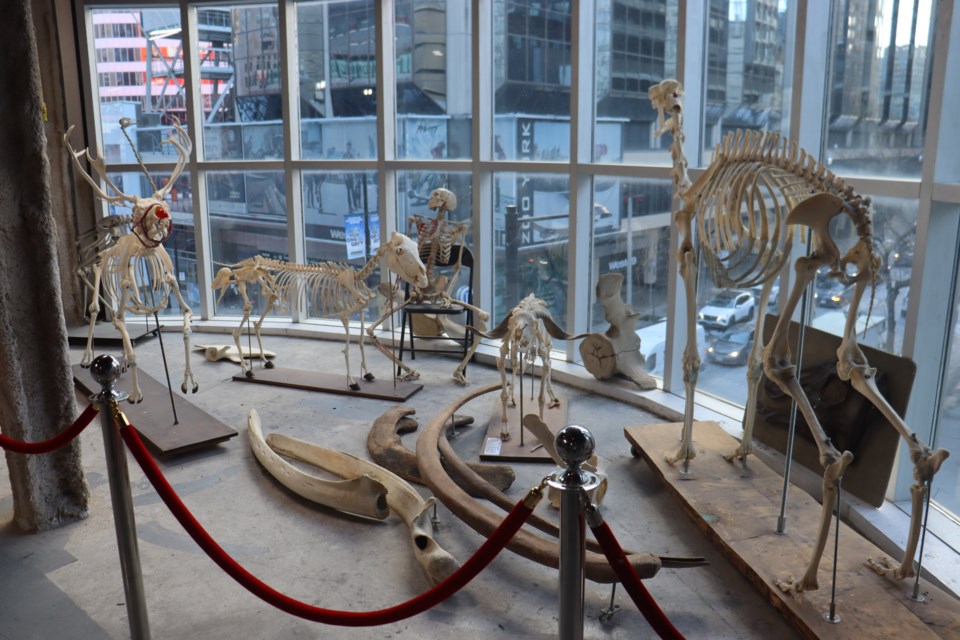
TorontoToday squeezed in an interview with Lovatt just before he took off for a fossil expo in Arizona. He got the funding to go down there last minute where he intended to purchase 2,000 pounds of crystals and fossils for the store.
His trips and connections aren’t just limited to expos, however.
“I actually dig up dinosaurs in Wyoming a couple times a year which is really cool,” he said. “I’ve also got friends in Morocco picking for me, and they find amazing stuff — I get calls all the time. In Siberia, my friends there find cool stuff, too — like mammoth tusks. I’ve even gotten the skull of a stillborn woolly mammoth with tissue on it.”
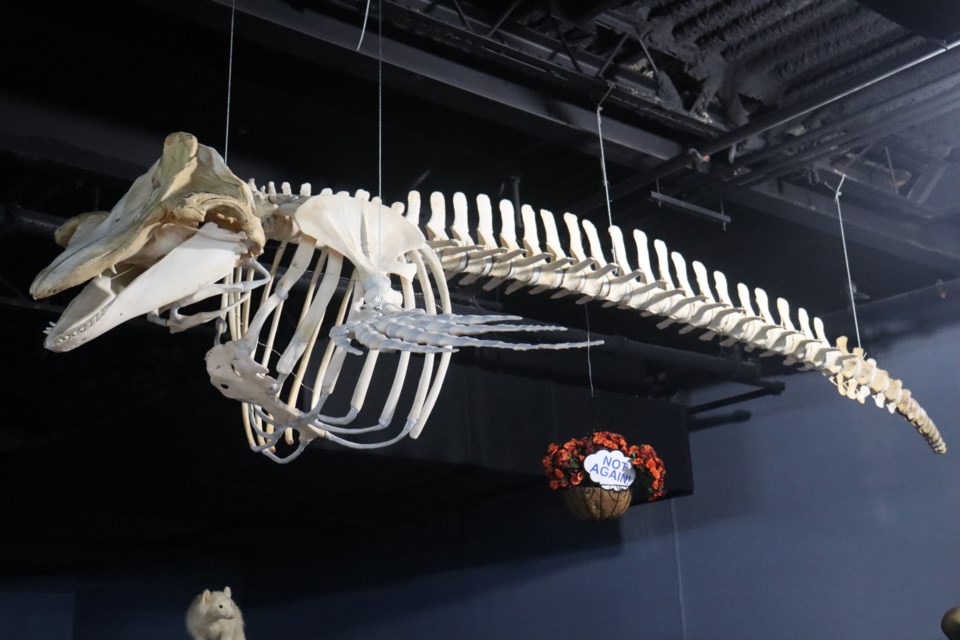
After receiving a three-month eviction notice at his Dundas business last year due to a condo development, Lovatt’s team was forced to pack up their things and find a new location.
Since last summer, SkullStore has been operating in the heart of downtown — right on Yonge Street and steps away from Dundas Square. The now 21,000 square-foot business, which is split between the educational store and the Prehistoria Natural History Centre, combines for roughly 30,000 pieces of artifacts and other miscellaneous memorabilia.
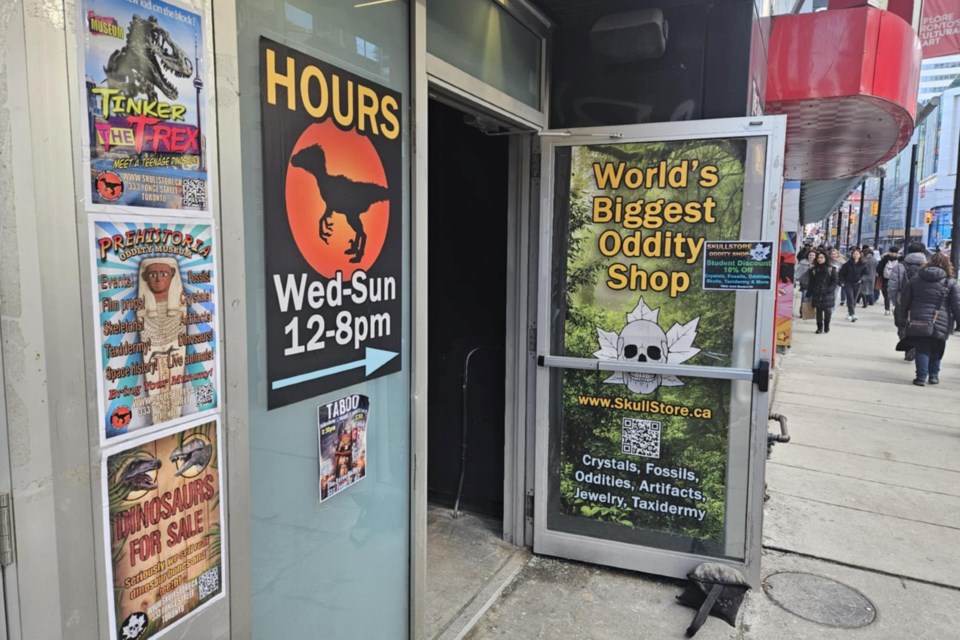
“I never expected to own dinosaurs and have a museum,” he said. “I’ve been through challenges my whole life, but this has been a really great chance to grow."
So, you sell human skulls — why?
The collection of human remains — from skulls and diaphonized fetuses to bones and teeth — are among the most delicate selections Lovatt handles. The antique specimens at SkullStore come from people who had intended for the remains to continue on, so burying or destroying them would be desecrating and disrespecting their intent, he explained.
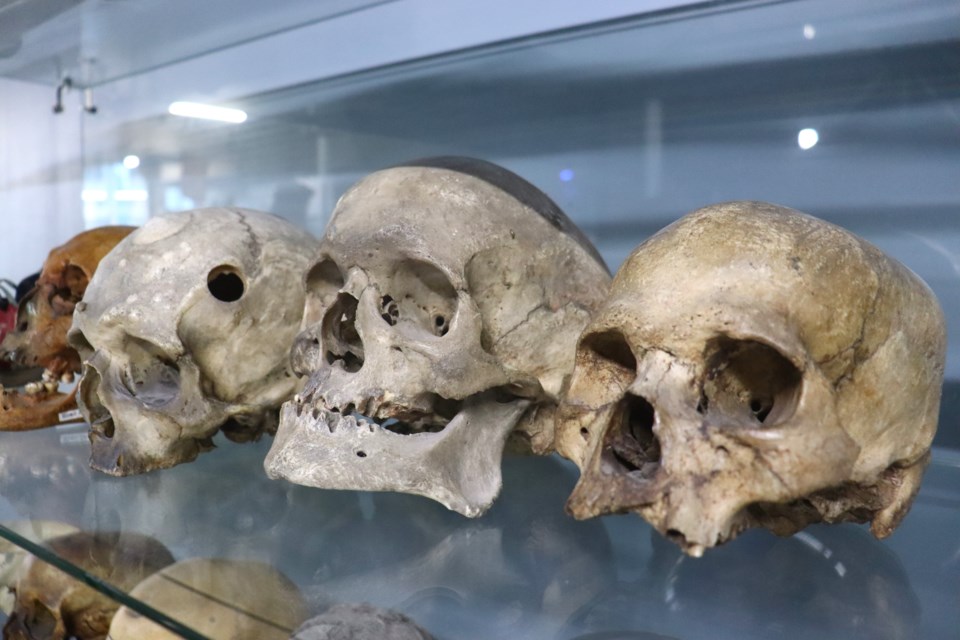
The curator noted that most people purchase them for academic purposes, like students who are in med school and other related studies. For others, it’s a more personal experience with a deeper and individualized meaning, he said.
“This is only a small part of what we do. If you’re going to buy human remains from us, we ask why. They’re not oddities, they’re not quirky things — they deserve to be treated with the dignity and respect that any living human does today.”
“Holding a human skull is a unique experience,” he added. “It’s a chance to look at yourself in a mirror and in a way you’ve never done before. Every thought, every personality trait, every memory is encapsulated in this object you’re holding. It’s a chance to really reflect on that.”
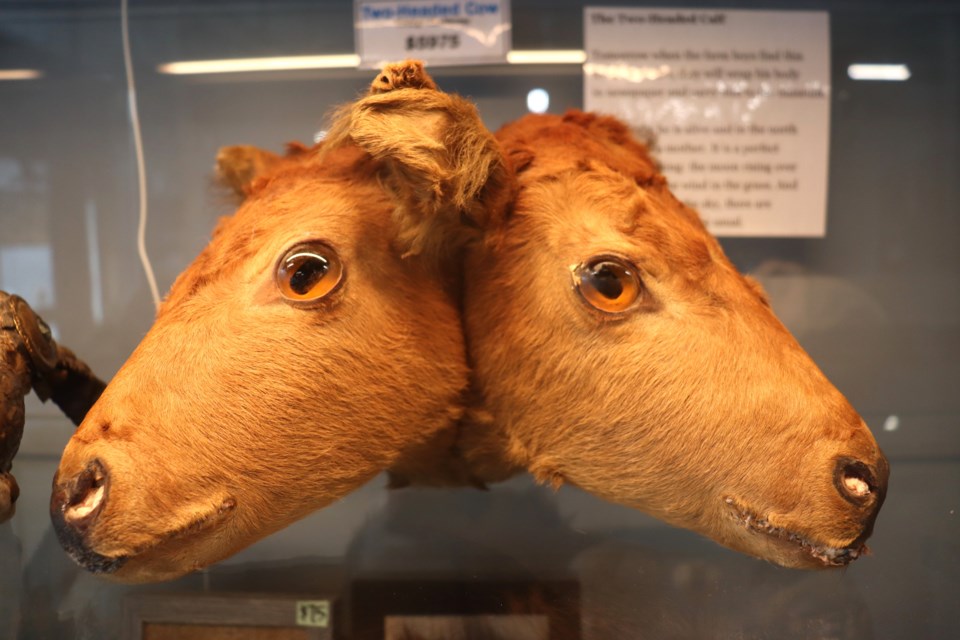
Lovatt cautions his customers and visitors to never buy an artifact — whether it’s 5,000 years old or 400 million years old — with the thought they now “own” it, or that it solely belongs to them.
“You have a responsibility if you take on these pieces,” he said. “You’re being entrusted to ensure it continues on. You’re paying for the opportunity to be its caretaker, and that’s the role we take and try to educate our customers on.”
Overseeing thousands of unique artifacts, some of which can’t be found anywhere else on the continent, means the entertainment industries in North America are always knocking on Lovatt’s door.
For the better part of a decade, SkullStore has gotten to be part of more than 150 film and television productions, including Star Trek, Murdoch Mysteries and Ozzy Ozbourne music videos.
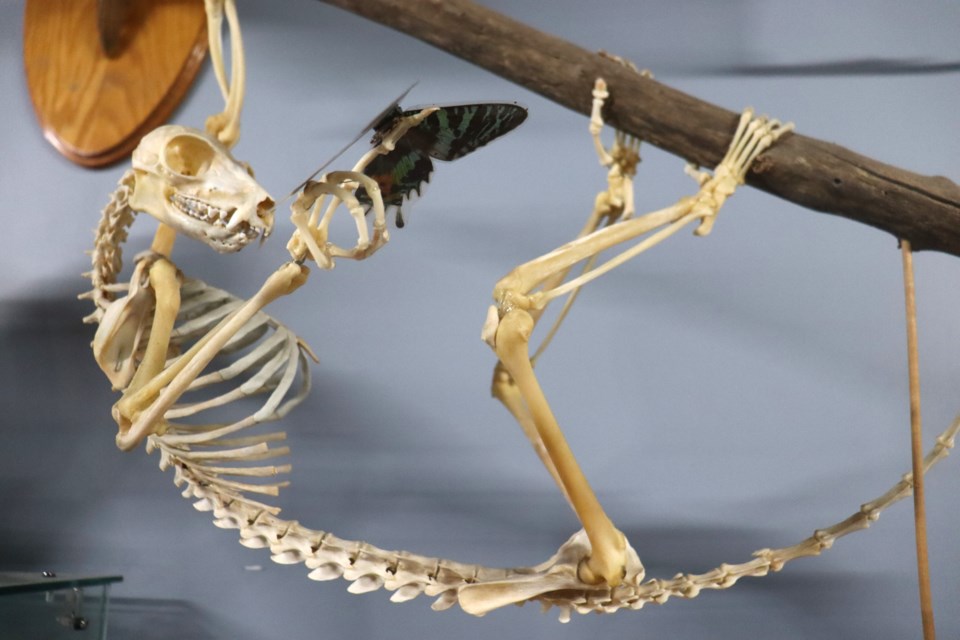
Nearly 100 objects in the museum will even be featured in Oscar-winning director Guillermo del Toro’s upcoming Frankenstein movie, which will premiere on Netflix in November.
“The prop and set people came to me and asked what would a mad scientist in the late 1880s Ireland have in his home? I got to help consult with the objects that would be in his home and his lab, which will be visible on set. Deformed animals in jars, human remains, wet specimens — that kind of stuff.”
‘You get to touch things’
More than anything, Lovatt wants his space to be as interactive for the public as possible. He noted there are many museums in the world that are “very dry” and don’t have much context attached to their exhibits.
But on Yonge Street, he’s hoping to make people rethink what a museum can and should be.
“You get to touch things, experience things,” he said. “We’re in a society that has more access and interest in nature than ever before, but less connection to it. Science and history have become a digital experience. But this is a spot to make the world real and make it something you can experience.”
TorontoToday had the chance to touch or hold several artifacts during a recent tour, including a narwhal tusk, a triceratops skull segment and toolmaking stones crafted from a chimp-like primate that date back to more than two million years ago.
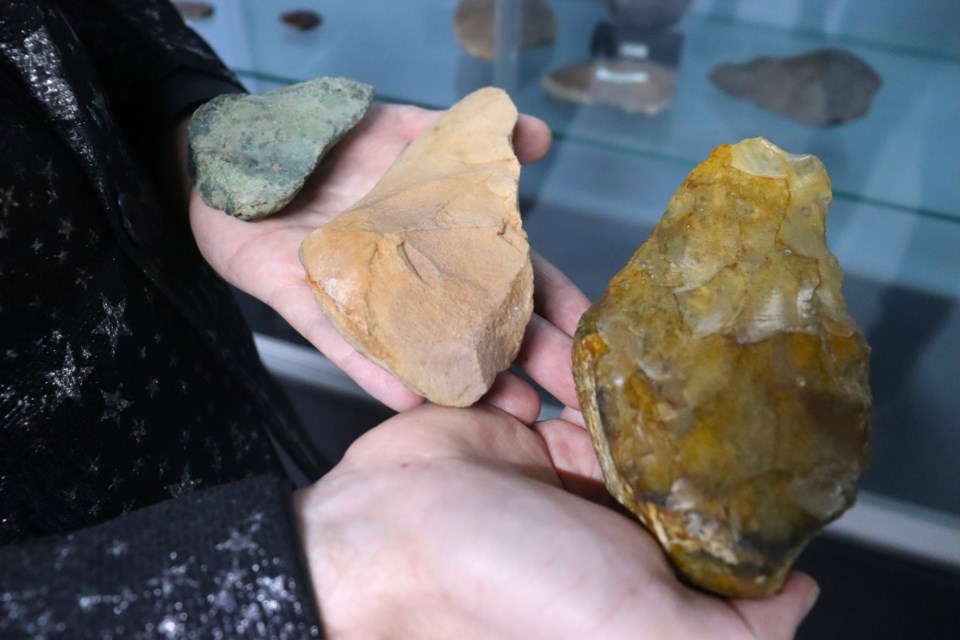
Lovatt is involved with a number of exciting projects coming up at the museum, which includes ongoing renovations at the store and a variety of new conservation programming.
There’s even a project where he’ll be taking thin cross sections of woolly mammoth feces for the purposes of scoping out plant seeds. Soon, his team hopes to bring back extinct plants from the ice age through those seeds.
“It’s something new — a whole new door of knowledge,” he said.
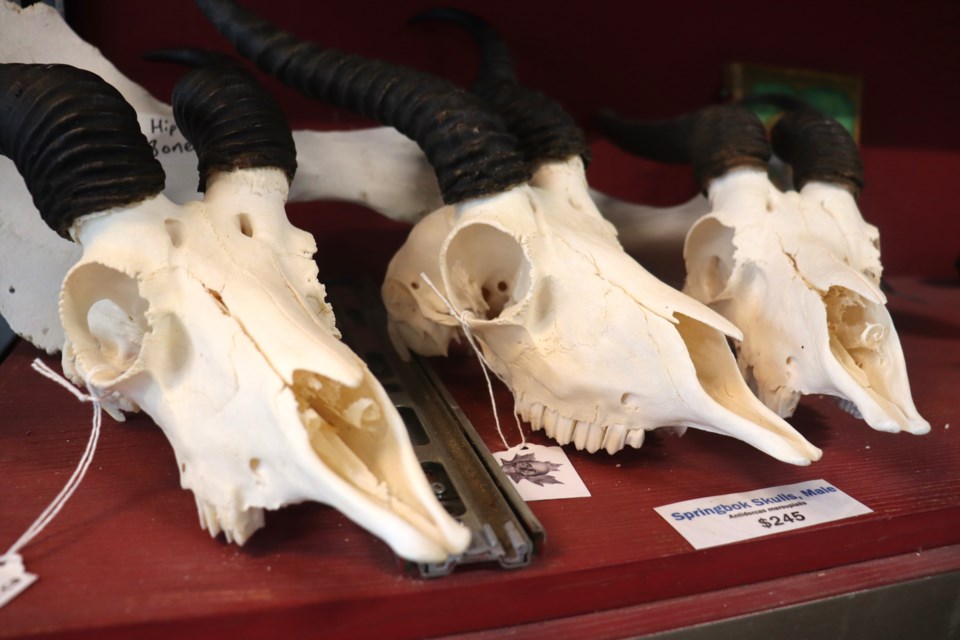
It wasn’t that long ago when Lovatt couldn’t afford to go to a museum, which made him feel like he didn’t deserve the opportunity to have that experience. Those sombre moments from his past are what fuel his passion today and are a big reason why admission at Prehistoria is to pay what you can.
“I never wanted someone to experience that feeling,” he said. “Although we have one of the highest rents for a museum in the country, we don’t force admission. Donate what you can, and if you can’t, you still deserve the same access to our shared history.”
“It’s a passion project — you don’t do this to get rich. But the momentum is really building now.”
